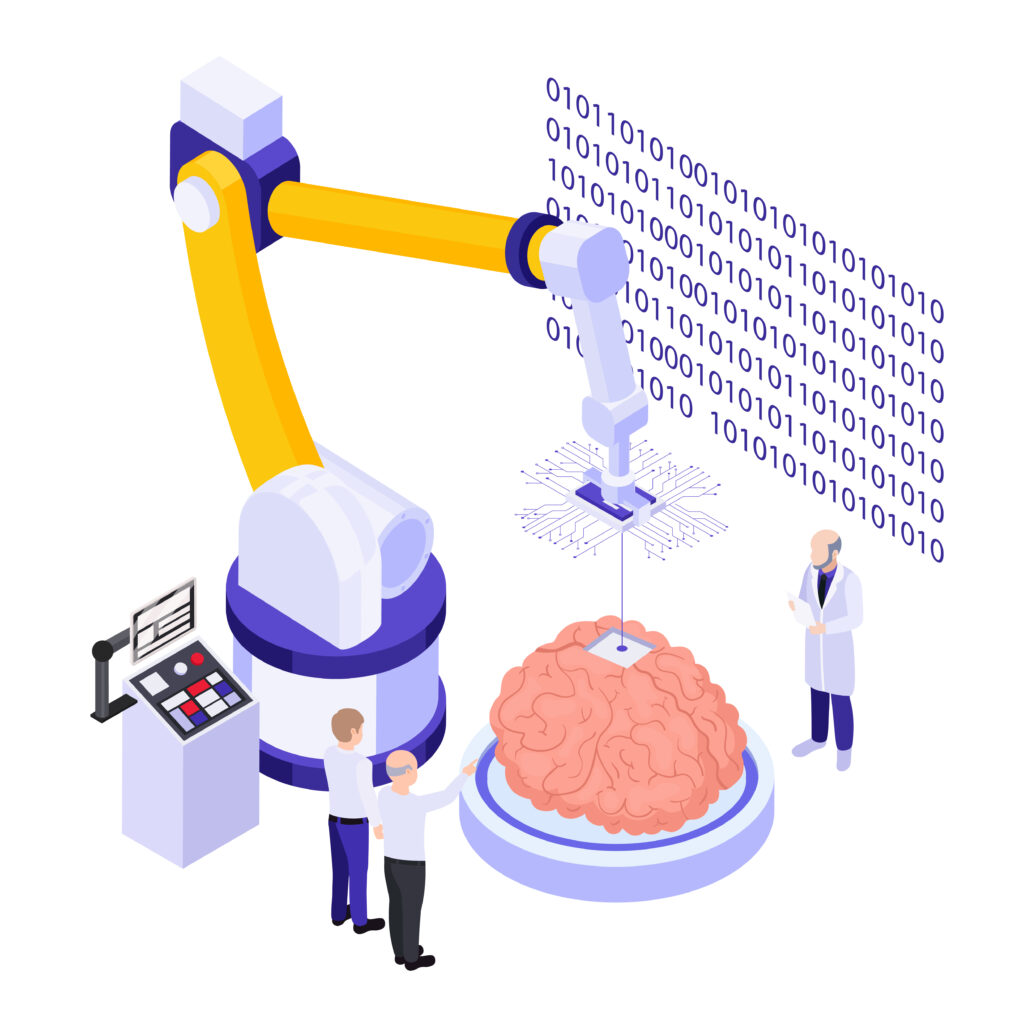Explore the Future of Machine Learning in 2025 & Top Machine Learning Trends Set to Transform Industries
As machine learning (ML) rapidly evolves, 2025 promises to bring impactful changes across industries. From privacy-centric technologies to modular, customizable models, ML trends this year will emphasize ethical AI, accessibility, and real-world applications. Dive into our guide on the key trends set to reshape ML in 2025.
Table of Contents
Top Machine Learning Trends in 2025

Federated Learning – A Revolution in Privacy and Decentralization
Federated learning allows data to be processed locally on individual devices, protecting user privacy without sacrificing the power of machine learning insights, which is one of the top machine learning trends that is going to revolutionize the industry. With increasing data regulations, federated learning is quickly becoming essential for industries aiming to protect sensitive data. In 2025, enhanced connectivity from 5G and edge computing will make federated learning more viable across healthcare, finance, and retail sectors.
“Federated learning is the key to bridging data access with data privacy in a secure, scalable way.” — Dr. Andrew Ng, AI Pioneer and Co-founder of Coursera
Gartner predicts that by 2025, 60% of all healthcare providers will adopt federated learning models to streamline operations without risking patient confidentiality.
Explainable AI (XAI) Brings Transparency to Machine Learning Models
The second best machine learning trend is Explainable AI (XAI), With complex ML models, the need for transparency has led to the rise of Explainable AI (XAI), providing insights into how models make decisions. This approach ensures compliance and builds trust, especially in finance, healthcare, and legal sectors where accountability is essential. In 2025, XAI is expected to be critical to how companies deploy AI responsibly.
| Industry | Benefit | Example |
|---|---|---|
| Healthcare | Improved Diagnosis Accuracy | AI tools explain diagnostic results |
| Finance | Increased Transparency | XAI offers insights into credit scoring |
| Legal | Greater Accountability | Explains ML model-based legal decisions |
| Retail | Enhanced Customer Trust | AI explains personalized recommendations |
“Explainable AI is essential to making AI systems not only smarter but also trustworthy.” — Yann LeCun, Chief AI Scientist at Meta
Autonomous AI and AutoML Democratize AI for SMBs
AutoML (Automated Machine Learning) is transforming the way small and medium-sized businesses (SMBs) access and use AI by reducing the need for specialized coding skills. Autonomous AI takes things a step further by enabling systems to improve independently, making it an indispensable tool for businesses. This trend will continue to grow in 2025, making advanced AI capabilities accessible to organizations of all sizes.

How AutoML and Autonomous AI Benefit SMBs
In 2025, AutoML and Autonomous AI tools will help companies optimize operations, improve customer experiences, and reduce costs. According to a report by McKinsey, SMBs that adopt AutoML see 30% faster time-to-market for new solutions compared to companies that rely on traditional ML methods.
“AutoML has the potential to transform business operations across industries by making AI accessible to everyone.” — Fei-Fei Li, Professor of Computer Science at Stanford University
Machine Learning for Climate Tech and Sustainability
In response to climate change, ML is becoming integral to climate tech. With tools for predictive weather modeling, energy optimization, and carbon footprint reduction, 2025 will be a pivotal year for sustainable ML applications.
Predictive Climate Modeling and Energy Efficiency in 2025
Machine learning models are being used to manage resources and reduce emissions in energy grids, agriculture, and urban planning. A recent report from The World Economic Forum reveals that AI-driven climate tech solutions can potentially reduce greenhouse gas emissions by 20% by 2030.
“ML-powered climate solutions give us a fighting chance against the growing climate crisis.” — Demis Hassabis, Co-Founder and CEO of DeepMind
Emerging AI Technologies in Machine Learning for 2025
Edge Machine Learning for Real-Time Processing
As edge ML enables data processing on local devices rather than centralized servers, it will play a crucial role in applications where immediate decision-making is critical. Autonomous vehicles, industrial IoT, and real-time healthcare monitoring are just a few examples where edge ML will be transformative.
Benefits of Edge ML in Autonomous Vehicles and IoT
With the rollout of 5G, edge ML will improve real-time data processing, making applications like autonomous vehicles and industrial IoT more reliable and efficient. Research by ABI Research forecasts that by 2025, 30% of IoT devices will rely on edge ML to optimize decision-making without cloud dependency.
“Edge ML is reshaping the future of autonomous tech by enabling decisions at lightning speed.” — Elon Musk, CEO of Tesla
Modular and Customizable AI Models
As businesses demand more flexible AI solutions, modular and customizable AI models are gaining momentum. These models allow companies to integrate specific AI components, optimizing them for unique business needs without overhauling entire systems.
According to Forrester Research, 70% of companies will adopt modular AI models by 2025 to tailor ML applications across industries, making it possible for diverse sectors to customize AI-driven insights.
Preparing for the Quantum Leap in Machine Learning
Quantum Machine Learning (QML) and Its Future Impact
While still in its infancy, quantum computing has the potential to revolutionize ML by handling complex computations at unprecedented speeds. Quantum machine learning (QML) could solve advanced problems in cryptography, pharmaceuticals, and climate science faster than ever.
Potential Applications of Quantum Machine Learning in 2025
Quantum computing’s breakthroughs in 2025 could lead to faster drug discovery, optimized energy solutions, and advanced cryptographic security. According to Deloitte Insights, companies adopting QML will be able to process data 1000 times faster than traditional methods, opening new doors for innovation in data-heavy sectors.
“Quantum machine learning will redefine what’s possible in technology and beyond.” — Sundar Pichai, CEO of Google
The Ethical Imperative in Machine Learning
Ethical Machine Learning and AI Regulation
As AI becomes more embedded in everyday life, ethical considerations are critical. In 2025, AI regulation will focus on minimizing bias, ensuring data security, and prioritizing transparency in AI applications. The European Union’s AI Act and similar regulations globally will establish guidelines to ensure that AI is used responsibly.
| Ethical Aspect | Description |
|---|---|
| Data Privacy | Protecting personal data in ML applications |
| Bias Prevention | Reducing inherent biases in AI algorithms |
| Transparency | Clear explanations for AI-driven decisions |
| Accountability | Ensuring accountability in AI deployment |
“Ethical AI is essential to align technology with human values and societal goals.” — Brad Smith, President of Microsoft
Conclusion
Machine learning in 2025 will bring transformative innovations and foster ethical, privacy-conscious AI use. With federated learning, XAI, AutoML, edge ML, and modular AI models, companies can enhance operations and deliver better user experiences. As quantum computing and climate-focused AI drive new possibilities, businesses should stay informed on these trends to maintain a competitive edge. Also more tech-related guide visit the Tech Review Arena the best Tech Review site
Read Related Article : Top 18 Machine Learning Companies in USA 2024


[…] Machine Learning Trends to Watch in 2025 […]
[…] Machine Learning Trends to Watch in 2025 […]
[…] Machine Learning Trends to Watch in 2025 […]
[…] Machine Learning Trends to Watch in 2025 […]
[…] Machine Learning Trends to Watch in 2025 […]
[…] Machine Learning Trends to Watch in 2025 […]
[…] Machine Learning Trends to Watch in 2025 […]
[…] Machine Learning Trends to Watch in 2025 […]
[…] Machine Learning Trends to Watch in 2025 […]
[…] Machine Learning Trends to Watch in 2025 […]